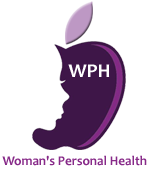

Among women treated with hormonal therapy for breast cancer, acupuncture and Effexor® (venlafaxine) were similarly effective at reducing the frequency of hot flashes. These results were published in the Journal of Clinical Oncology.
The majority of breast cancers are hormone receptor-positive. These cancers are stimulated to grow by the circulating female hormones estrogen and/or progesterone. Treatment of hormone receptor-positive breast cancer often involves hormonal therapies that suppress or block the action of estrogen. These therapies include tamoxifen (Nolvadex®) as well as agents known as aromatase inhibitors. Tamoxifen acts by blocking estrogen receptors, whereas aromatase inhibitors suppress the production of estrogen in postmenopausal women.
Common side effects of hormonal therapy include hot flashes and night sweats. Antidepressants such as Effexor have shown some effectiveness in managing these symptoms but can produce side effects and may not be acceptable to all women.
Acupuncture is a form of traditional Chinese medicine that aims to improve health by stimulating specific points of the body.[1] Because acupuncture has shown some promise in reducing hot flashes in breast cancer patients, researchers conducted a study to compare it to Effexor.[2] The study involved 50 women with Stage 0-III breast cancer who were experiencing hot flashes during hormonal therapy. Half the women received acupuncture for 12 weeks, and half the women were treated with Effexor for 12 weeks.
•Both groups (acupuncture and Effexor) experienced significant decreases in hot flash frequency. Acupuncture appeared to be as effective at reducing hot flashes as Effexor.
•By two weeks after completing treatment with acupuncture or Effexor, hot flash frequency increased in the Effexor group but remained at low levels in the acupuncture group.
•Side effects among women treated with Effexor included nausea, dry mouth, dizziness, and anxiety. Acupuncture did not produce any negative side effects.
These results suggest that acupuncture may be as effective as Effexor at reducing the frequency of hot flashes in breast cancer patients treated with hormonal therapy.
References:
[1] National Center for Complementary and Alternative Medicine. Acupuncture: An Introduction. Available at: https://www.nccih.nih.gov/health/acupuncture-in-depth . Accessed January 4, 2010.
[2] Walker EM, Rodriguez AI, Kohn B et al. Acupuncture versus venlafaxine for the management of vasomotor symptoms in patients with hormone receptor-positive breast cancer: a randomized controlled trial. Journal of Clinical Oncology [early online publication]. December 28, 2009.

